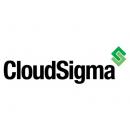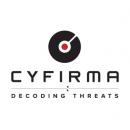Malta:
Bulgaria:
Who are we?
Who are we?
We are a team of IT Experts in different technology domains and Business Professionals who provide very swift and responsible ICT Services and Solutions in the area of:
- Cybersecurity.
- Computer networking.
- System administration.
- System integration.
- System and Network security.
- Web development.
- System automation.
What do we provide?
What do we provide?
Our Primary Business Goal is to provide the below services at an affordable price:
- SECaaS - Security as a Service offered on a monthly basis.
- Cloud Integration and Automation (DevOps).
- Reliable and complete ICT services covering the specific customer’s technology domain.
- Software House - Software Product Development services.
We are your Boutique IT shop and Service Provider, where you can find the necessary IT and Business skills to manage the entire lifecycle of your IT environment.
Why AV?
Why Advanced Vision IT?
- We can provide you with an excellent value for a quite competitive price.
- We want to be your partners and to grow with you.
- We care for your business as we do for ours.
- If you are successful, we are successful too.
- We are proud of our work.
- We can see the full picture of your ICT needs.
How do we do all of that?
How do we do all of that?
- We will go deep in understanding your business ideas or/and technical requirements.
- We will do some brainstorming and present you with some solutions to choose from.
- We will suggest you the best one and explain the drawbacks and advantages of every option so you can decide.

Advanced Vision IT Ltd is committed to providing superior solutions and services by utilizing an implemented and certified management system in accordance with ISO 9001: 2015 and ISO / IEC 27001: 2013.
Quality and Information Security Policy of Advanced Vision IT LTD
Quality and Information Security Policy of Advanced Vision IT LTD






















